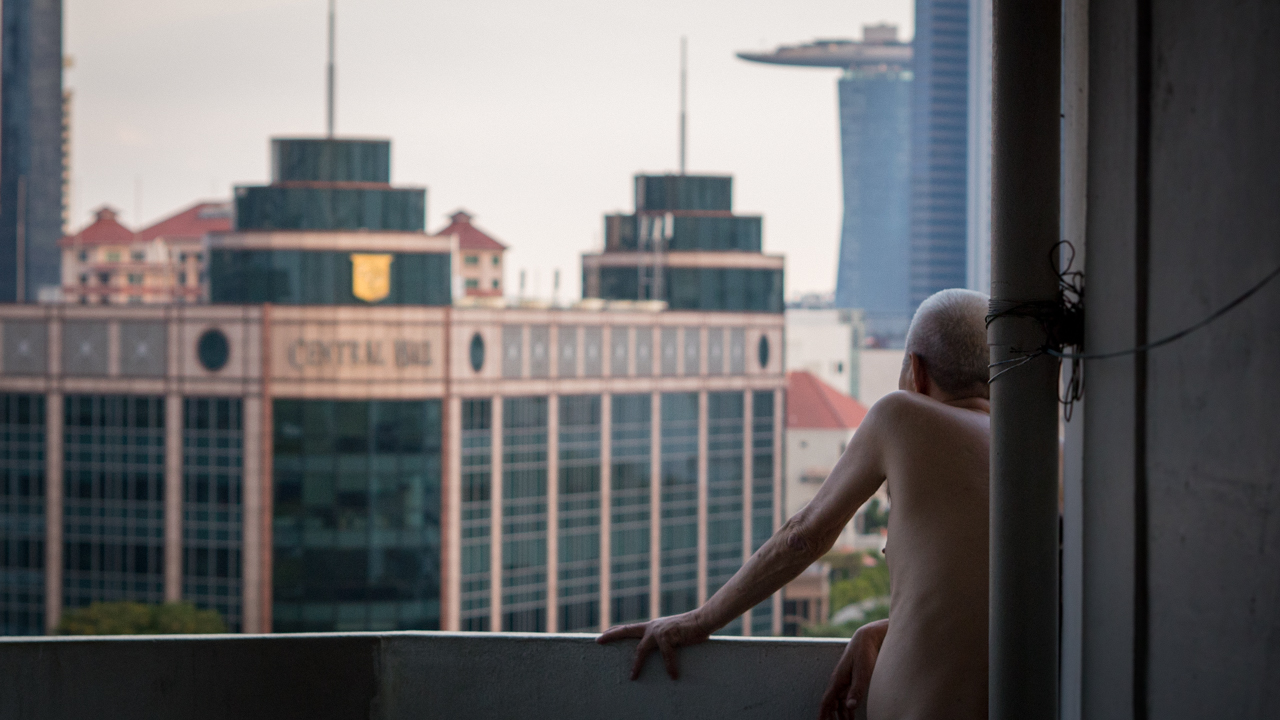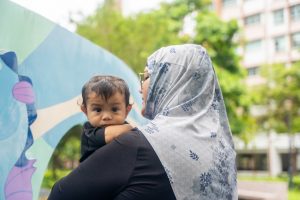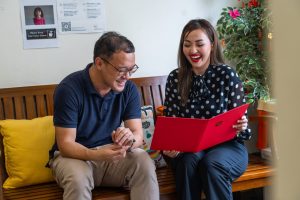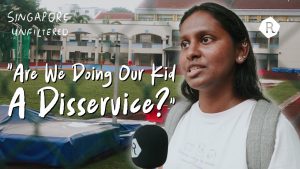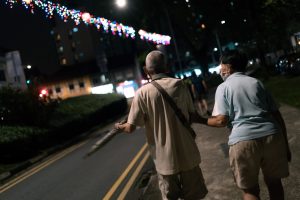To many Singaporeans, the word “poverty” calls to mind very specific imagery: that of malnourished children somewhere in Africa, begging for food on the streets. Or the dishevelled, homeless adults in less-developed parts of the world.
A lot of us don’t realise that poverty is present in our own backyard. It doesn’t look the same, but it’s nevertheless happening in first-world Singapore.
A few months ago, we launched a series on Jalan Kukoh—a rental-housing estate that’s one of the poorest neighbourhoods in the country—seeking to understand how the poor in Singapore live, and more importantly, the kind of support they need.
The response we got was great. There were those who wrote in to offer Belle, our intern who lives in the area, words of support and encouragement after hearing her story; there was someone who wanted to send her a gift to remind her that she is more than her vices, mistakes, and circumstances; there was even a DJ who offered her free classes after reading that DJ-ing was something she wanted to try.
Likewise, when it came to Ikhmal, a father of 6, readers wrote in asking to be put in touch, offering to donate the basic necessities (used clothes, toys, etc) to his young children. Since Hari Raya was just around the corner, some wanted to share their Eid Raya cookies with his family—all of this despite the fact that the video wasn’t meant to draw donations of any kind.
But here’s the thing many of these generous, well-meaning individuals might not have realised: for every Belle and Ikhmal, there are many more in either similar or worse situations.
Wanting to help is great, but for true and long-term change to happen, the community as a whole has to be supported.
Since there are those who are already doing their part to make a difference in the Jalan Kukoh area, we thought that sharing their stories would give Singaporeans a clearer idea of how they too can play a part.
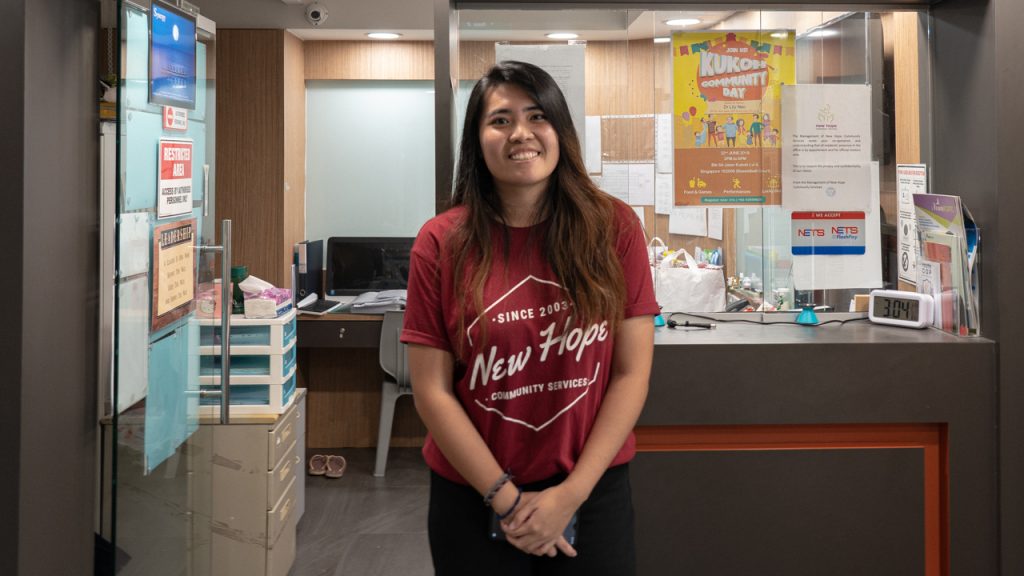
They are social workers and volunteers from New Hope Community Services, a Volunteer Welfare Organisation (VWO) that was born after a group of 4 men and a family with 2 children approached founder and executive director, Pastor Andrew Khoo, seeking temporary shelter. More homeless men followed suit, and soon, a shelter for men was formed in 2003.
Today, New Hope has a shelter providing temporary housing to homeless families/individuals while assisting them in regaining their footing in society. There’s also a Shelter for Men-in-Crisis, providing housing to ex-offenders, assisting them with rebuilding their lives and reintegrating into society.
Recognising that homelessness can happen for many reasons, New Hope aims to fill the gap, providing a Shelter of Hope to homeless Singaporeans in order to empower them.
Noble as New Hope’s mission is, Xin Ling, the programme manager of the music mentorship programme, shares that leaving the comforts of her previous job at the National University of Singapore was by no means an easy decision. There were great career progression opportunities, but she heard God calling her to a different career path—one with a higher purpose.
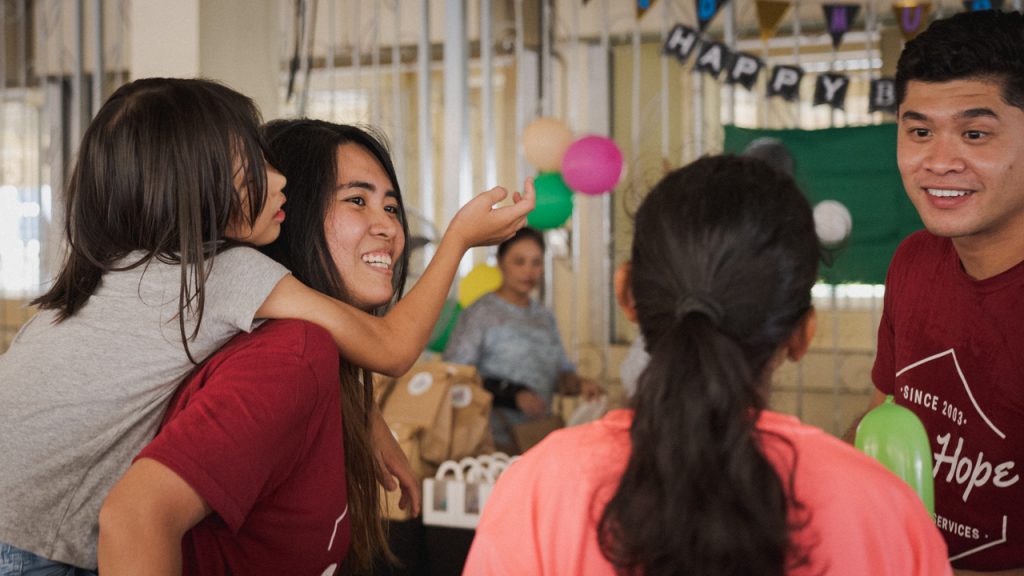
“The children of Jalan Kukoh are no different from the children of Bukit Timah, Punggol, or anywhere else in Singapore. What they need is love and healthy relationships, together with a champion/mentor in their lives. Someone who will never give up on them; to help them believe in themselves and be the best version of themselves they can be. We’re here to try to infuse the kind of hope that helps them believe they can, and will break out of their unfortunate and difficult circumstances,” Xin Ling tells me.
To find out more about New Hope or volunteer, get in touch with them via their website, Facebook page, or Instagram.
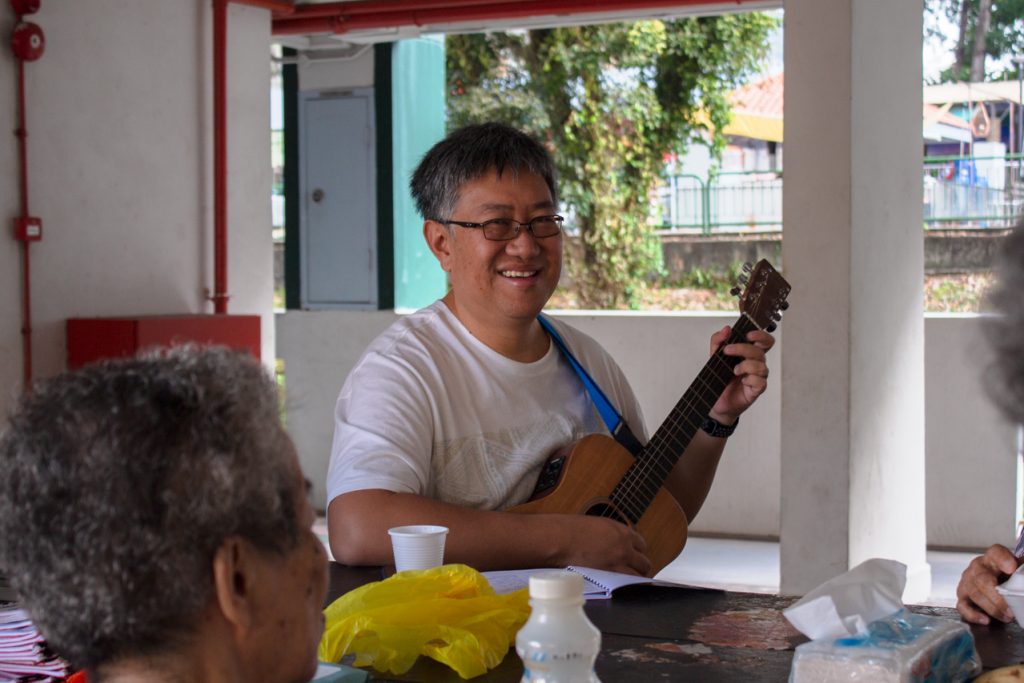
Held every Saturday morning at the void deck of block 9, the small, informal one hour “meetings” allow elderly residents to come together for a simple breakfast of coffee shop beehoon, following which a few songs are sung, a passage from the bible is read, and everyone talks about the week that’s just passed. It’s so simple there’s isn’t even an “official” name for the group.
What’s perhaps most interesting about the breakfast fellowship, however, is that except for Timothy, its other “leaders”—Bobby and Kelvin—are ex-convicts. Timothy tells me that he first met Bobby when he was a volunteer in Kaki Bukit’s prison school, and the two later became friends. When Bobby was released, he worked for Timothy in his wife’s café, later joining his “boss” on his Saturday morning breakfast sessions.
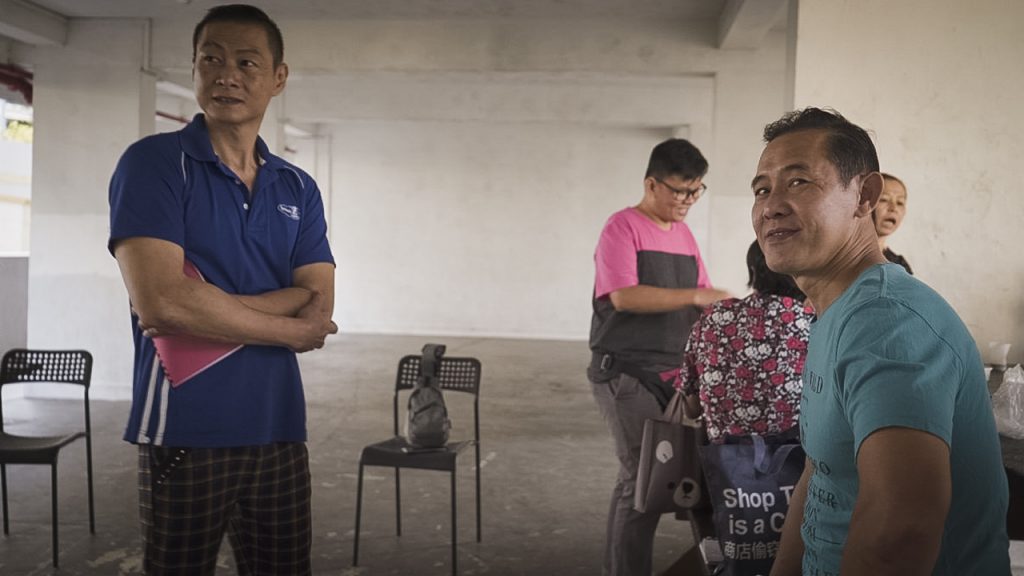
Timothy then goes on to tell me that fostering the community spirit organically is of utmost importance—it’s the missing piece of the puzzle.
To a certain degree, most of the residents in Jalan Kukoh have most of their basic needs taken care of by the government. It’s not much, but there is a roof over their heads; they have discounted or even free medical care; there are well-meaning organisations who provide their meals. What they lack is someone to meet their social and emotional needs.
Unfortunately, being this ‘someone’ is something many perceive to be harder than it actually is. Using himself as an example, Timothy shares that volunteering doesn’t have to be a grand gesture, or cost an arm and a leg. He spends about $22 buying breakfast for the residents and only an hour with them, just chatting about life.
“I think people tend to think volunteering is only about what you can give. And when you go in with this saviour mentality, it sets the bar way too high. I mean. you can only do so much. So when you find they’re not being helped as much as you’d like, you try even harder and eventually burn out. It’s not self-renewing or sustainable.”
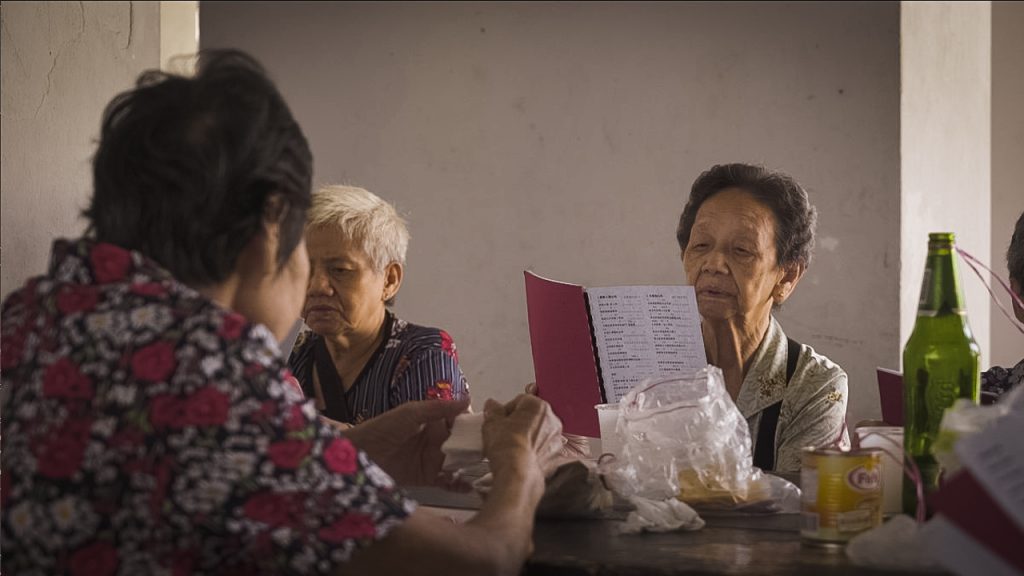
To Timothy, more people can afford, and need to be willing to step out of their comfort zones to explore the different sides of Singapore, regardless of whether committing to helping the community sticks. He tells me that they needn’t worry about having the perfect solution. Instead, it’s about constantly trying to help these people effectively cope with the challenges they face, and find their way out. What works and what doesn’t can be learnt along the way.
“The important thing is this: if we can help one family find their way out, can they bring others with them? If being in poverty is like being in jail, the question is: can we engineer a collective jailbreak? I think it really takes a whole village la, to make Jalan Kukoh a better place,” he tells me.
To get in touch with Timothy and the breakfast fellowship, email him here.
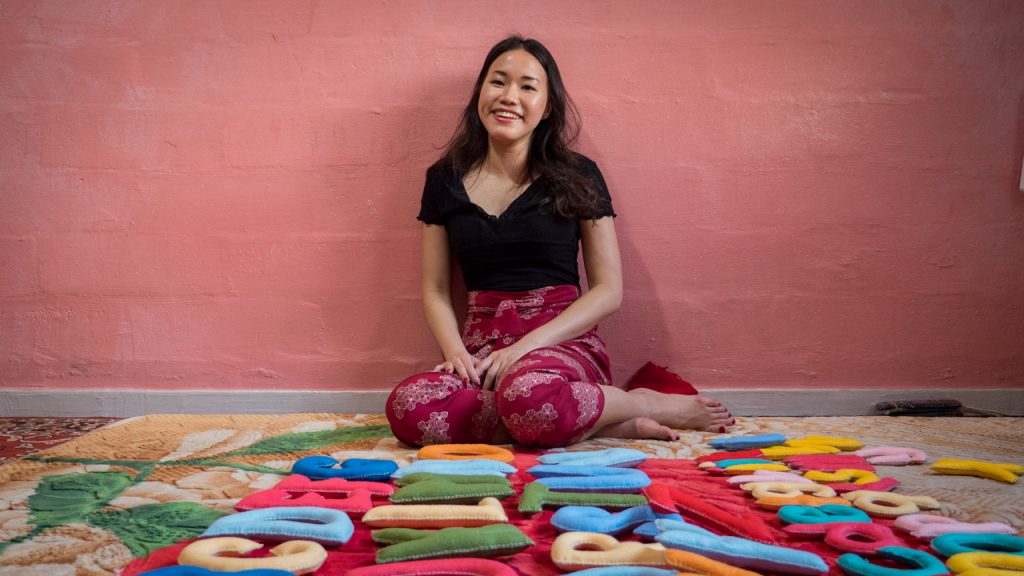
Founded in 2014 by Amanda and fellow lawyers Jonathan Muk and Michelle Yeo, ReadAble is a non-profit organisation that runs weekly English literacy classes for children and migrant women in the low-income neighbourhood.
In the home of their first-ever student, Emma, (Amanda is here to pick up hand-made teaching aids sewn by Alice, Emma’s Indonesian mother) she shares that ReadAble was born after Jonathan visited the area in late 2013 as part of his church’s food distribution programme. He was approached by Alice who asked if he could teach her daughter to read. Aware that there was a need for improved literacy in the neighbourhood, he agreed.
“Before we started working with the Resident’s Committee towards the end of 2015, we ran the programme out of the homes of parents we befriended. We taped mah-jong paper to the wall, using it as a makeshift whiteboard and built our very first library right here in Alice’s house. Even when we weren’t around, she’d very kindly open up her home so kids could come over anytime and access the books!”
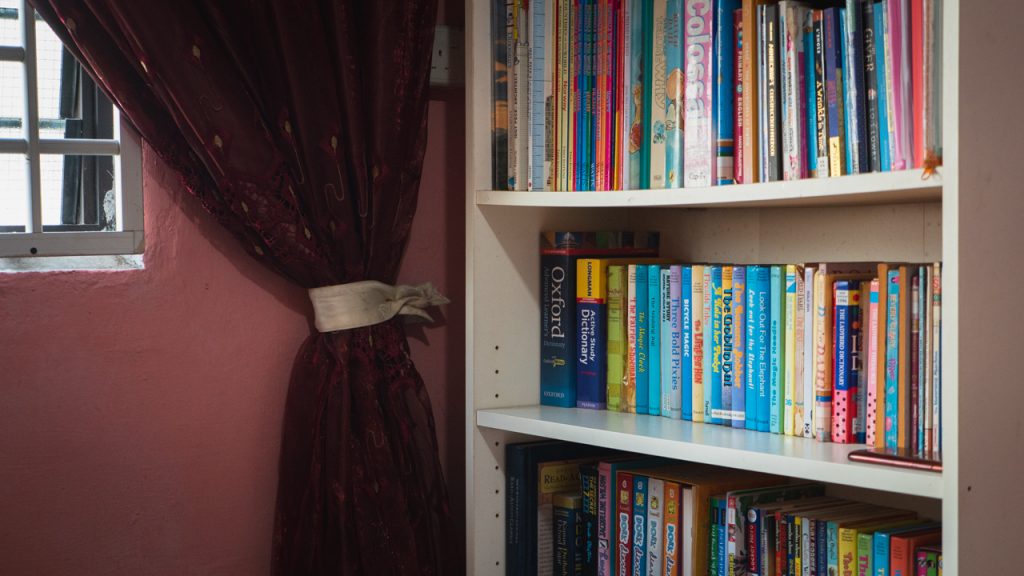
“There were just so many kids!” Amanda says.
From what started out as just an idea to improve literacy rates in the neighbourhood, ReadAble blossomed into a fully-fledged organisation. It’s been hugely successful, and Amanda attributes ReadAble’s success to the strong bonds they have within the community.
As long as there’s a need for the programme, Jonathan, Michelle, Amanda, and their team of over 60 volunteers (of diverse nationalities, ages and backgrounds) have no plans to leave Jalan Kukoh. Yet they recognise that there are other low-income neighbourhoods filled with children who also need help. This prompted them to create ReadyAble (ReadAble’s outreach and training arm), which empowers other groups to set up their own reading programmes in other areas.
But simply teaching children to read is not the only thing the team does. Sometimes, they also assist residents (whom they call their friends) in making decisions about their children’s future.
Believing that it’s important for a child to enjoy learning, Amanda explains the ReadAble team tries to expose the children to schools they might not have heard of, or those which offer CCAs/have a school culture that’s in line with the child’s interests and who they aspire to be.
“It’s so they have a wider view of the world and can discover what they love. Our kids themselves have really wide aspirations—from baristas, lawyers, kpop dancers to nurses,” Amanda tells me.
Seeking to build an inclusive community which encourages children’s diverse aspirations and engages everyone with empathy, the team thus regularly invites role models of different professions to run workshops for the kids.
For example, musician Ethel Yap; poet Poet Tse Hao Guang; and actress Siti Khalijah have all come down to interact with the children, exposing them to fields they might’ve heard of but never otherwise have had the chance to understand or learn about. Or even from.
Most recently, ReadAble even had a Mediacorp journalist teach the children how to write stories about their neighbourhood.
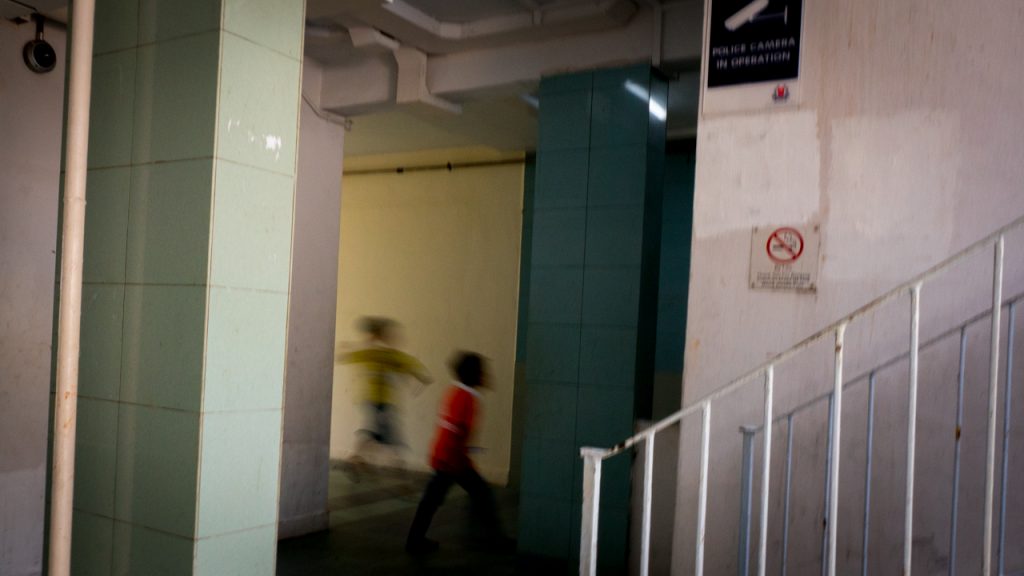
But of all the things Amanda says during the time we spend together, it’s her final words that truly hit home.
“I think the success of a country is measured by how we treat the marginalised within the community. And if you just ignore the problem of social inequality, not have any compassion, or don’t believe that they’re equally deserving of living with dignity, then as a country, we’ve failed.”
To reach out to Amanda or the team, or if you’d like to start your own literacy programme in another neighbourhood, contact ReadAble here.
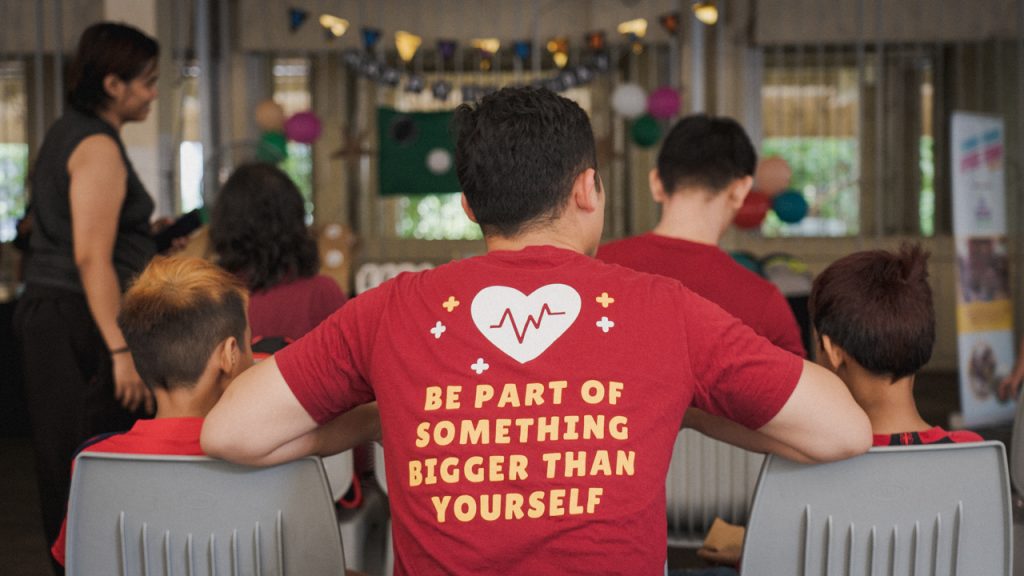
As mentioned in the beginning of this article, the problem isn’t that Singaporeans aren’t willing to help the less fortunate. Rather, many don’t even know the issue exists in the first place.
And when we do find out about their situations—and as evident from the Facebook comments left on our articles/videos—many still remain critical or apathetic towards their plight. So then the question changes from whether we even know enough in the first place to start caring, to whether we care enough.
Whatever the case, try to heed Timothy’s advice and take that first step out of your comfort zone.
Walk around the area. Talk to the people you meet. Discover the sides of Singapore that’s hidden in plain sight, in the shadows of high-rise, multi-million dollar buildings and tourist attractions.
Also, if it isn’t obvious by now, don’t treat Jalan Kukoh’s residents like second-class citizens. Instead, approach them as equals, like how you start new friendships.
When you leave, and decide you want to help, invest in the community. Help, but do it because you want to. Remember that kindness doesn’t always mean grand gestures, and that you don’t have to have the perfect solution. All you have to do is try.
What’s most important, however, is that you recognise that it’s not just about Jalan Kukoh—there are so many other neighbourhoods that require help as well. These folks need you to step up; to think outside of yourself and serve the needs of others. Poverty may not look exactly how you imagine it to be but it exists. And it’s everyone’s problem.
Find it in yourself to help, and start with just paying attention to the people around you and your community at large.
Every little bit counts and goes a much longer way than you think.
